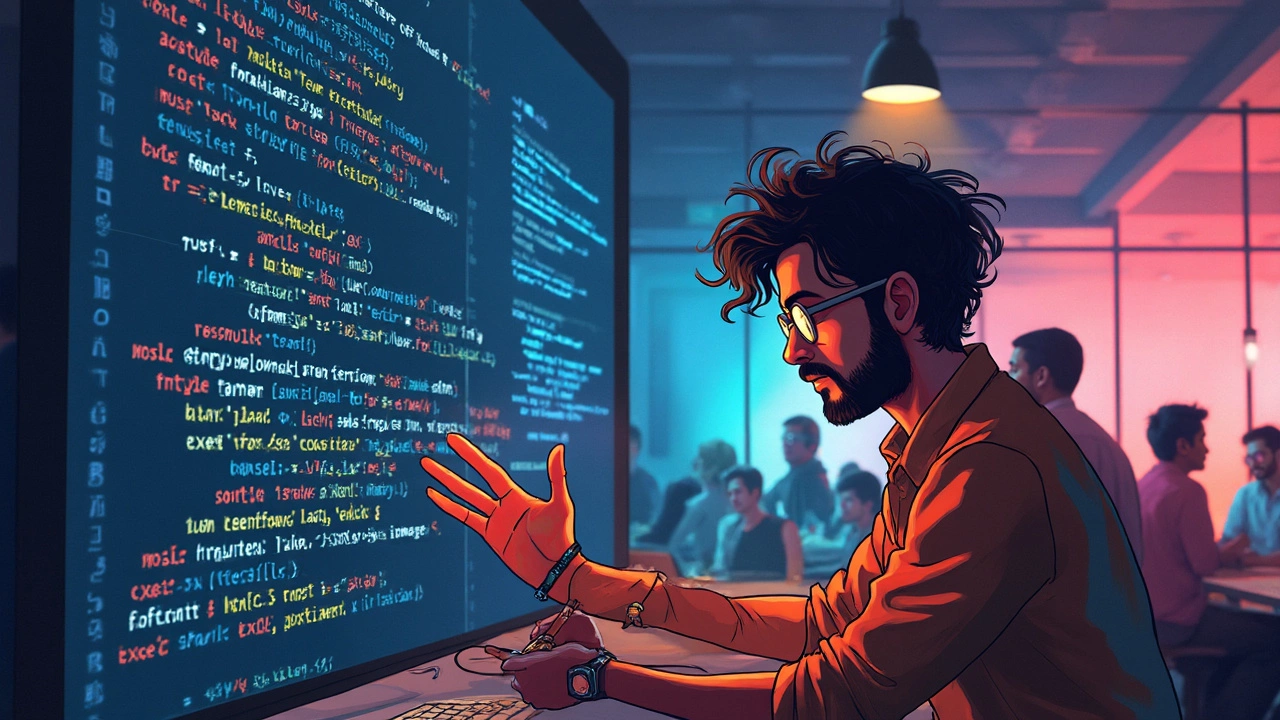
Hardest Coding Language – Why It’s Tough and How to Master It
When you hear "hardest coding language," you probably picture cryptic syntax, steep learning curves, and endless debugging. The truth is, difficulty isn’t just about weird symbols; it’s about how a language forces you to think, manage memory, and handle errors. In this guide we’ll break down what makes a language hard, name a few notorious ones, and give you real‑world tactics to get comfortable with them.
What Makes a Language Hard?
First, look at three core factors:
- Low‑level control. Languages that let you manage memory directly (like C or C++) demand precision. One misplaced pointer can crash the whole program.
- Strict type system. Strong, static typing forces you to declare everything up front. Rust, for example, checks ownership at compile time, which catches bugs early but adds mental overhead.
- Minimal abstraction. Some languages give you almost no “hand‑holding.” Brainfuck or Assembly expose the hardware directly, so you must build every feature yourself.
If a language ticks two or three of these boxes, most developers will label it "hard."
Top Contenders for the Toughest Language
Here are the names that keep popping up in coder forums and job interviews:
- C++. Powerful for game engines and high‑performance apps, but its syntax, templates, and manual memory management trip up beginners.
- Rust. Praised for safety, yet its ownership model feels alien at first. Learning when values move, borrow, or clone takes practice.
- Haskell. A pure functional language. If you’re used to loops and mutable variables, thinking in terms of monads can feel like solving a puzzle.
- Brainfuck. Not used for production, but it’s a classic test of brainpower. Eight commands, no variables – you end up writing code that looks like gibberish.
Each of these languages teaches you something valuable: C++ sharpens low‑level thinking, Rust forces you to write safe code, Haskell changes your problem‑solving mindset, and Brainfuck proves that any computation can be reduced to basics.
So how do you stop feeling stuck?
Start Small. Pick a tiny project – a command‑line calculator, a file‑copy utility, or even “Hello World” with extra features. The goal isn’t to build a full app; it’s to see the language’s patterns in action.
Use the Official Docs. The Rust Book, C++ reference, and Haskell’s “Learn You a Haskell” are written for beginners. Follow the examples step by step, and don’t skip the explanations of why something works.
Leverage Community Tools. Sites like Stack Overflow, Reddit’s r/learnprogramming, and language‑specific Discord servers give you quick answers. When you’re stuck, a short search can save hours of trial‑and‑error.
Practice Memory Management. For C++ and Rust, write code that allocates and frees resources deliberately. Use tools like Valgrind (C++) or cargo‑check (Rust) to spot leaks early.
Embrace the Error Messages. Modern compilers are blunt but helpful. Read the full error, copy the line it points to, and search the exact phrase. You’ll learn the language’s “grammar” faster than guessing.
Lastly, remember that difficulty is a sign you’re learning something deep. The more you wrestle with a tough language, the easier other languages become because you develop stronger mental models.
Ready to take the plunge? Choose one of the contenders, set a tiny goal, and start coding today. You’ll be surprised how quickly the “hardest” label fades away.
